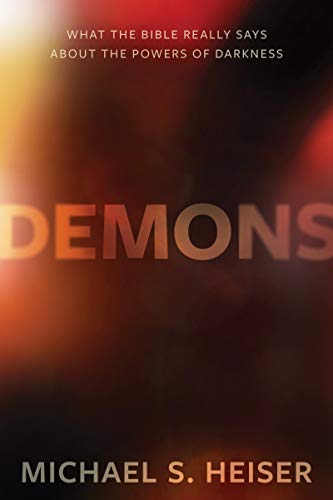BEN: If I’m reading Chapter Two right, you are arguing that there are not really vestiges of polytheism or henotheism in the worldview of the ancient Hebrews and their later scribes who assembled the OT, but rather they believe in monotheism, but they acknowledge: 1)other spiritual beings both benevolent and malevolent and so some form of ‘divine plurality’ (p. 41 n.8), and 2) they acknowledge that other peoples they live with or near are polytheists. Right?
MICHAEL: I’d say Israelites in general were like Christians today – some of whom even deny a Trinity (e.g., oneness Pentecostals). What I mean here is that “Israelites” would fall into many perspectives with respect to their thoughts about Yahweh. I think the Old Testament testifies to that pretty clearly. One manifestation of that would be aberrant Yahwism or “polytheistic Yahwism” (henotheism, with its idea that the lead deity could be displaced and was not
ontologically unique). That said, I don’t believe the biblical writers, a very small subset of “Israelites,” were polytheists, henotheists, or aberrant Yahwists. What they write tells us that they knew what those things were and didn’t approve of them. A different but related question concerns what biblical characters may have thought about Yahweh before there was much revelation (written or otherwise). For example, should we assume that Abraham could articulate the relationship between Yahweh and other gods with as much precision as Isaiah? Probably not. But if you asked Abraham whether he thought Yahweh was one among equals, he’d probably slap you. All this is to say that I think our academic categories are sometimes articulated with a bit of conceit. Academics on the non-confessional side like to pretend everyone was a polytheist until Isaiah (and then they summarily ignore – or redefine the terms – the divine plurality language of nearly 200 instances at Qumran, where Qumran writers use naughty pre-exilic phrases from the OT that scholars say telegraph polytheism). On the evangelical side, we tend to think every biblical writer and all biblical characters had the same body of theological knowledge in their heads simultaneously. This is simplistic thinking. My concern, though, is that some scholars, even evangelicals, have biblical writers embracing heretical thoughts about God. I’d say the earliest writers may not have known as much as the later ones, but they knew a small set of important items with clarity.













